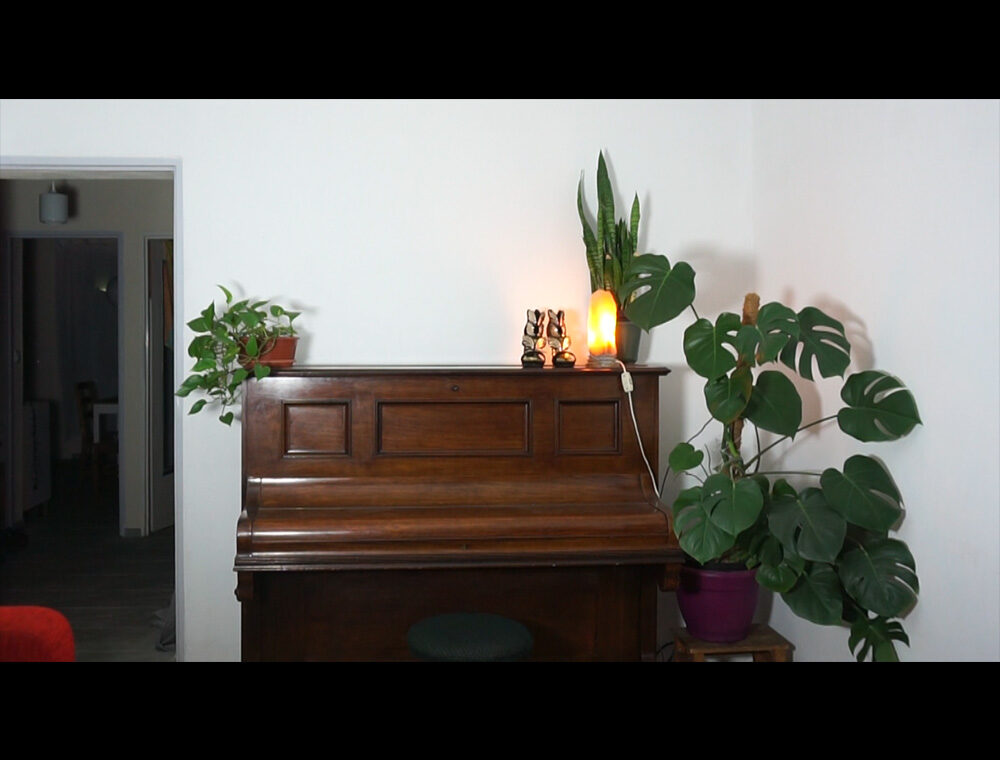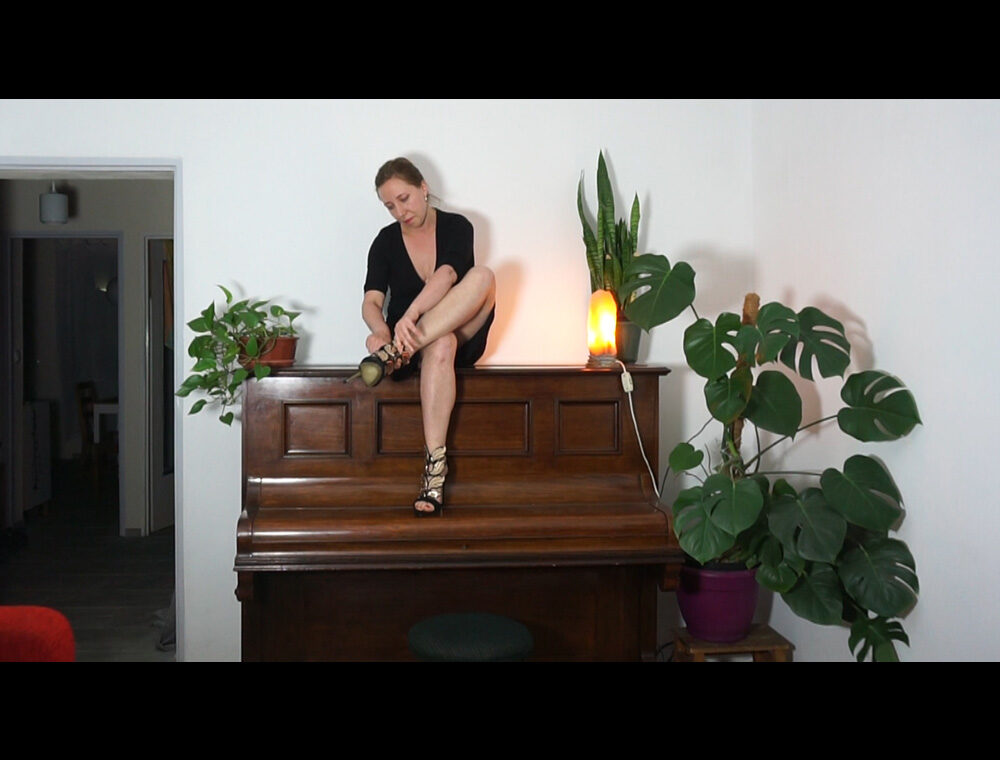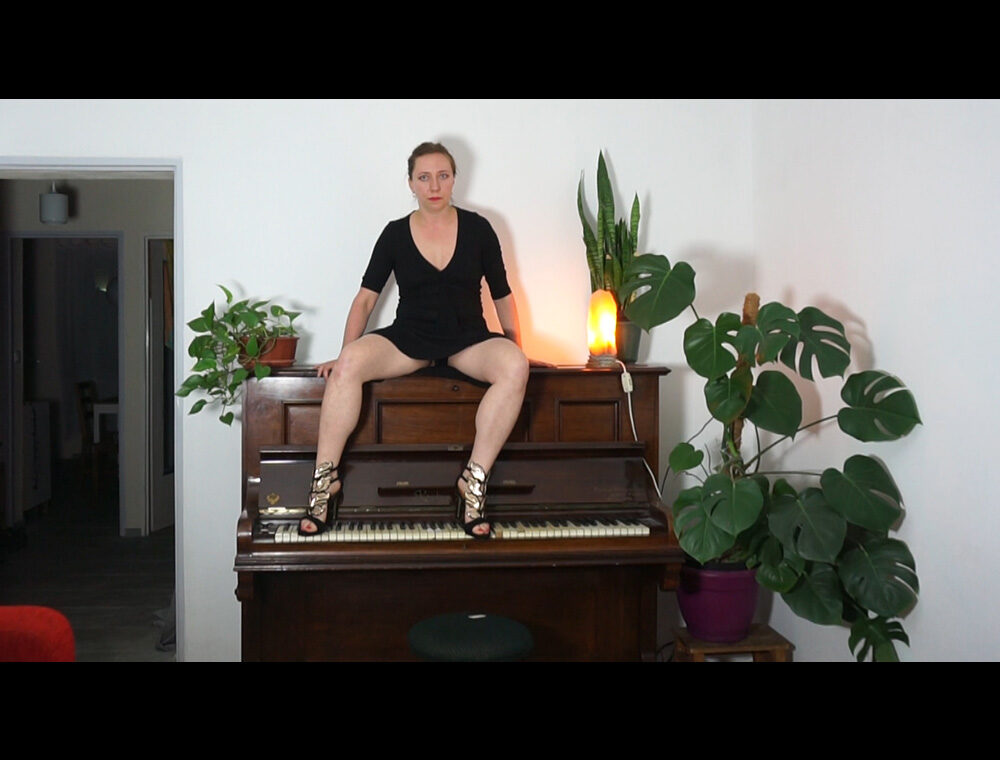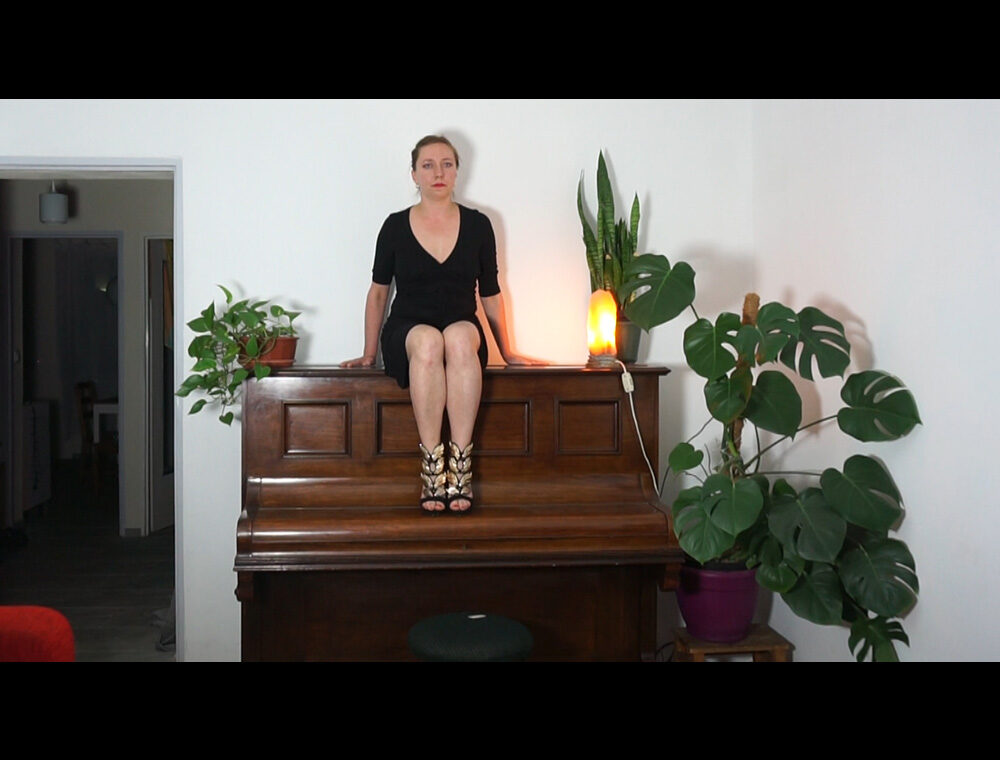/2021/
the weight of love / performance on – line
Work realized as a performance On – Line transmitted live during the international performance art festival AUSTRAL 2021 in Buenos Aires, Argentina.
In my apartment I have an antique piano whose history is connected with the story of war and love. As a child, I tried unsuccessfully to learn to play it. Even though this piano was my nightmare, due to its sentimental value I cannot give it away or sell it… So what should I do with such a wonderful souvenir? The performance is a chamber concert, played on two legs, not two hands. A concert in which the person playing does not sit on a chair, but on a piano, where each step produces a sound. A concert in the opposite direction, on the one hand elegant – played in high heels, but on the other absurd. A concert in which you can feel the tension between innocent fun and erotic provocation. Played by a woman aware of her sensuality, and at the same time reminiscent of a little girl playing. Broadcast at night to the other hemisphere, from a Polish block of flats in a small town to Buenos Aires, full of secrets and passions – the Argentine capital of tango.
Piano history:
There was always a piano at home, my mother played Chopin and Christmas carols on it. I also wanted to learn to play it, I even went to music school, but my attempts ended in failure. I learned the history of this instrument later, and it begins in pre-war Lviv, where my great-grandmother Filomena lived, a seamstress by profession and passion. This person, whom I only know from stories, must have enjoyed the respect and trust of his clients. Proof of this is the piano, which was given to her during the war, when the ghetto was being established, by a Jewish family whose name I do not know, assuming that the piano would be in good hands and would be recovered after the war. The war did not end quickly, the piano could not be returned to its owners, after the war my great-grandmother, grandmother and the rest of the family decided to leave Lviv, which became part of the USSR. Of course, the piano had to be taken, after all the word had been given, but how to do it? Here another person appears in history, my grandmother Marysia, who was friends with the Dominicans in Lviv, who, when the monastery was liquidated, had permission to transport „large items” to Poland, so the piano along with the monastery equipment ended up in Krakow and waited for further developments. Finally, in the 1950s, my grandmother received a telegram – the Dominicans were afraid that some of their goods would be confiscated, so Marysia had to take the piano back. Here again the question arises: how to do this? At this point, another character enters the scene and turns the war story into a love story: my grandfather, who was then trying to court my grandmother. Grandpa Jan said „don’t worry, Marysia” and after a few days he brought the piano by train from Krakow to Opole… how? Later we asked him how he did it and how he delivered the piano from the station to his girlfriend’s house, he replied: „how so? – normally, we brought them with our friends on belts. The piano survived the war, numerous removals, the 100th anniversary flood and two generations of children banging on its keys. After all these experiences, its board is cracked and it cannot be tuned. If I wanted to sell it, it would not be worth much. I inherited it along with the apartment and together with the history, the weight of love stands in my living room.




